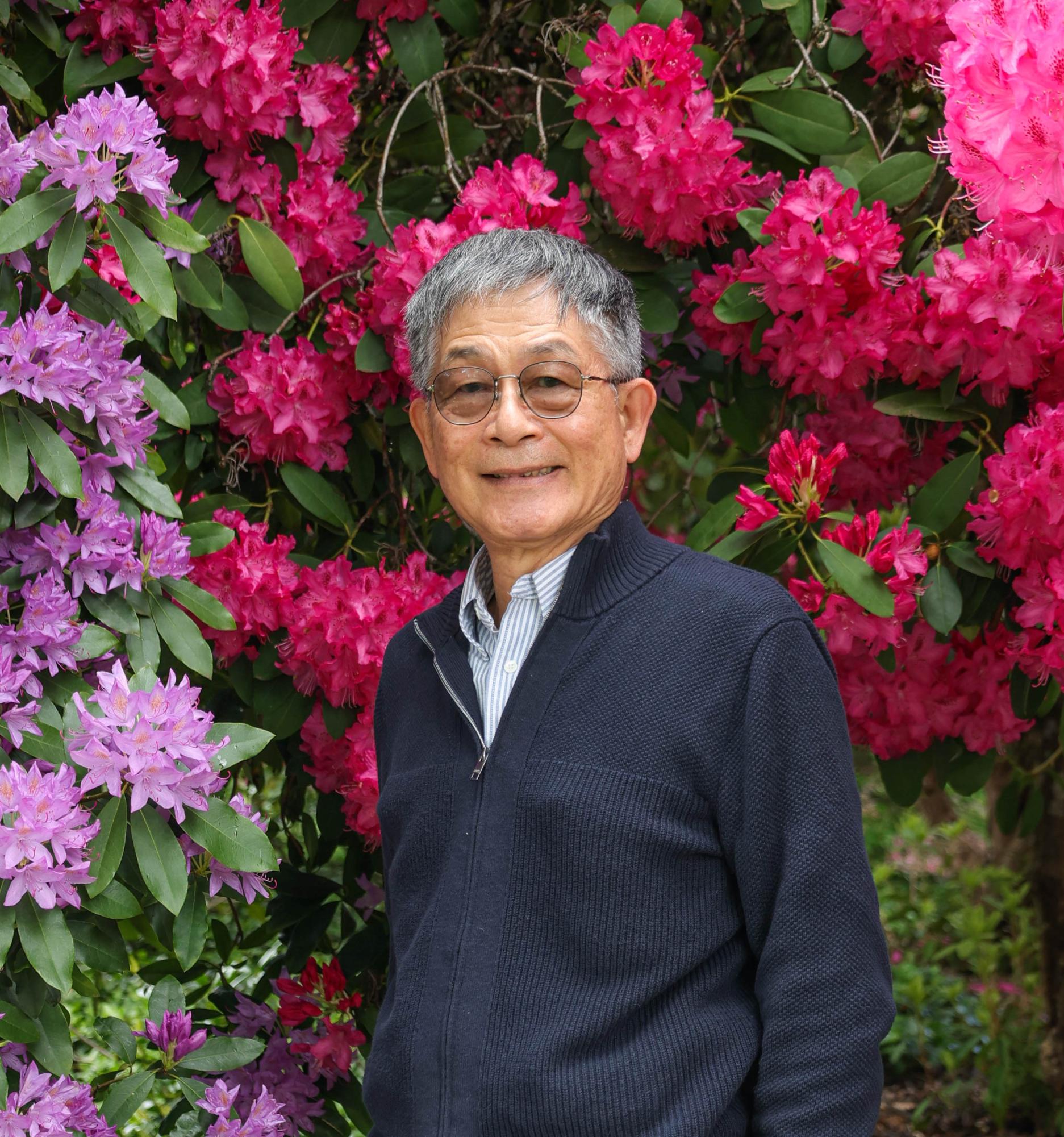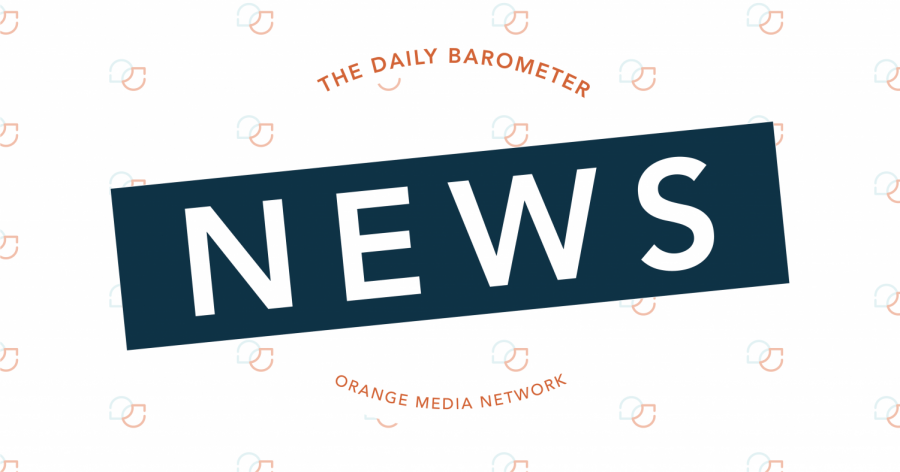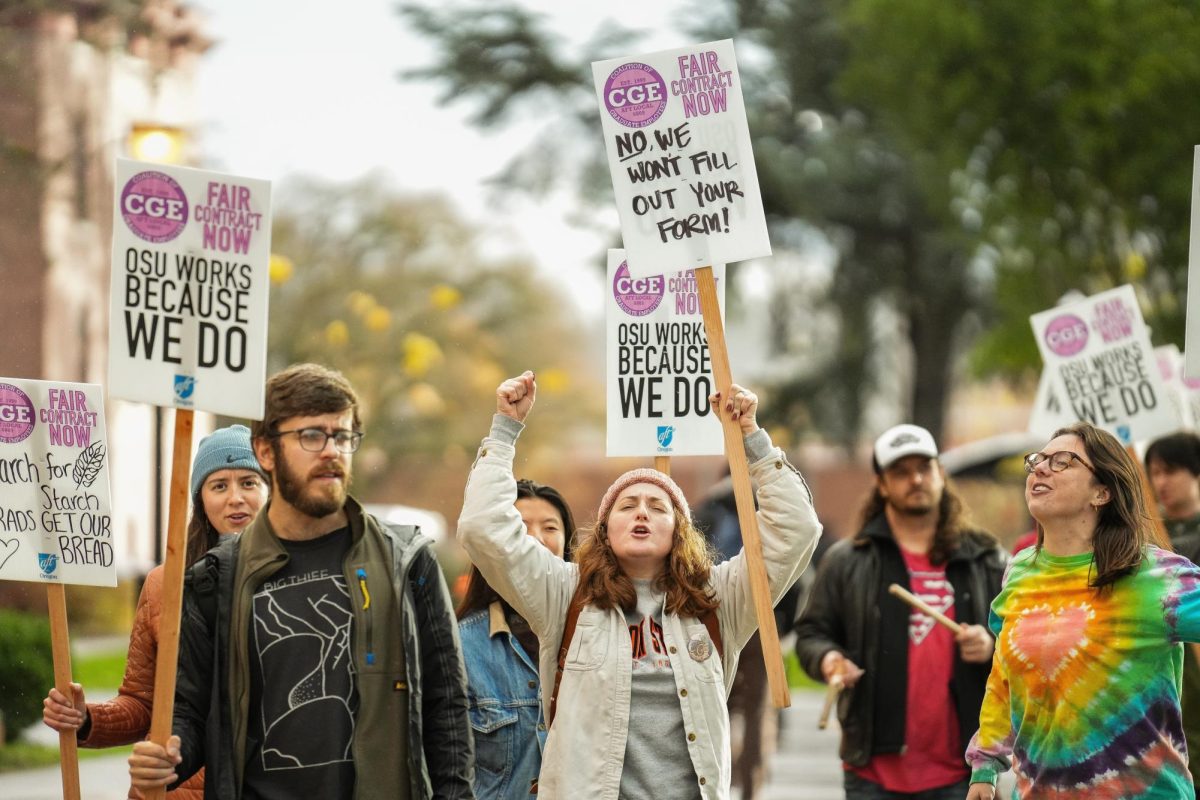The state of Oregon could receive a universal health care plan by 2026.
Under Oregon Senate Bill 1089, the state of Oregon has recognized that the responsibility of providing healthcare to the citizens of the state, rests on the state government.
“I cannot speak on behalf of either the State Universal Health Plan Governance Board or the university but the main objective (of the board) is to develop a single payer universal health plan for all residents of Oregon,” said Chunhuei Chi, a professor and coordinator in Oregon State University’s International Health Program.
Chi serves as a member of the board, which aims to have a complete plan to accomplish this in front of the legislature and governor by Sept. 15, 2026.
Before Chi was a member of the board, he worked with Taiwan in order to help realize their health care system. During sabbatical leave, he spent six months working full-time at the Bureau of National Health Insurance, which is Taiwan’s government agency administering the national health insurance plan.
“Taiwan is a small island, in terms of area it is a seventh of the size of Oregon, but in terms of population, it is nearly seven times (larger),” Chi said. “With that population size, I observed and witnessed just how the universal health plan helped change the people’s access to health care.”
Chi has been a volunteer since 1997, in order to promote universal health care, both in the state of Oregon and for the nation. For over two and half decades he has been working with many organizations that are advocating for universal healthcare.
“In 2002, it was the first time Oregon had a ballot measure for a universal health plan. That ballot measure was introduced and written by the first organization I volunteered for and continue to volunteer to this day, Mid-Valley Health Care Advocates,” Chi said.
Chi said there are multiple rationales for why a society, country or state like Oregon needs universal health care but since it is an issue of morality, you cannot approach your argument from a scientific perspective.
Chi said it ultimately boils down to a simple question: “Should every person in the country or state have equal access to health care, regardless of income or wealth?”
“Under the current status quo, the answer to this question is ‘No,’” Chi said, “because our current status quo is based on your income, your wealth and your employment. For those who are unfortunately financially constrained, some of them may be ineligible for Medicaid or Medicare. So already the country has what I call a ‘partial national health insurance.’”
Chi calls it “partial” because although there exists a form of national health insurance, it just isn’t universal for all Americans. So for those who are not eligible for Medicaid or Medicare, they are ultimately on their own and do not have equal access to health care.
“People who oppose universal health care (have multiple different arguments), one type of argument is treating health care as a merit, meaning whether you deserve to have access to health care or not, depends on how hard you are working,” Chi said. “The problem with that is there are lots of hardworking people who still don’t have access to health care because they are not making enough money or they work in a small business that doesn’t offer health care.”
These are ethical and normative arguments as to why Oregon or any country should or shouldn’t have universal health care. But there are often more than two sides to every story or issue.
“The argument could be viewed from a totally different angle: from a cost perspective. The United States, since the 1980s has persistently been the world’s most expensive health care system … but it is also a statistical outlier, meaning we are out of the trend.”, Chi said. “We spend the most per-capita on health care, (but) our health outcome is not that great. There are many different indicators for health outcomes but when comparing to other high income nations, the United States usually ranks towards the middle or near the bottom.”
The United States spends more than any other country and sometimes more than twice as much as other countries on health care, while cost of living is not much higher than comparable nations. So while the cost of living in Europe is (on average) no higher than in the U.S., Americans are paying more for what is ultimately less.
FChi explained this is because, “For a large hospital, nearly every patient admitted is provided under a different insurer and not just different health insurance but different plans. So the U.S. (has) nearly a thousand insurance companies and each company, particularly the national and regional ones, offer from dozens to hundreds of different insurance plans. Now multiply that by hundreds to thousands of different plans, that is why our system is so complicated because nearly every patient is under a different benefit coverage and different payment system.”
Because of this, there are transaction costs on both ends. Both the insurance provider and the hospital incur huge administrative costs just to handle medical bills. So together, this is an enormous transaction cost on society.
“There was an economic estimation done nearly a decade ago that calculated those transaction costs to amount to nearly 10% of our annual health care expenditure,” Chi said.
Since the work of the board is still in its early days, it is hard to predict what sort of plan will be structured to emerge in the next two years. However, the board is responsible for following certain principles, one of which is a “single payer trust fund.”
“What currently is fragmented through multiple forms of insurance, will be merged to all available funds into one single pot that we call a ‘trust fund’ and this is what we mean when we say ‘single payer system,’” Chi said.
According to Chi, under the current system, when those who are uninsured cannot afford to pay their medical bills, this is reflected as higher medical costs for those who are insured.
“The single payer pool tries to address these issues in making it so most if not all provider clinics will be under the same payment rate so that there is no discrepancy. Hospitals providing the same service will be receiving the same payment,” Chi said.
In terms of how those funds will be allocated to what sort of institution, remains to be seen due to it having not been developed yet. However, as stated in Senate Bill 1089, the trust fund should be separate from the Oregon State government’s general fund, meaning it will be set aside for the single purpose of providing health care.
“By separating it from the general fund, the trust fund cannot be tampered with. For example, if the general fund came across a shortage, (the government) cannot move the money from the trust fund to the general fund or vice versa. This means that the financing scheme that is going to be developed for the universal health plan has to be independent and self-sufficient,” Chi said.
Even after a plan is developed and the state of Oregon is to receive universal health care. There are still some barriers that the government has to hurdle over in accomplishing accessible health care for all its citizens.
Victoria Escobar is a graduate student at Oregon State who is seeking her master’s degree in public health practice at the College of Health and in discussing the potential universal health plan that the state could be receiving, she raised some concerns about the disparities certain communities may still face.
“Even if we do receive universal health care, I believe we will still encounter health disparities in marginalized communities due to the way our society has been set up historically. In the Latino community, (the community I’m from), there are high rates of people being uninsured and that stems from historical poverty and mixed households of citizens and non-citizens which creates fear and distrust towards the government,” Escobar said. “People in my community are often afraid to reach out to specific government entities.”



















































































































